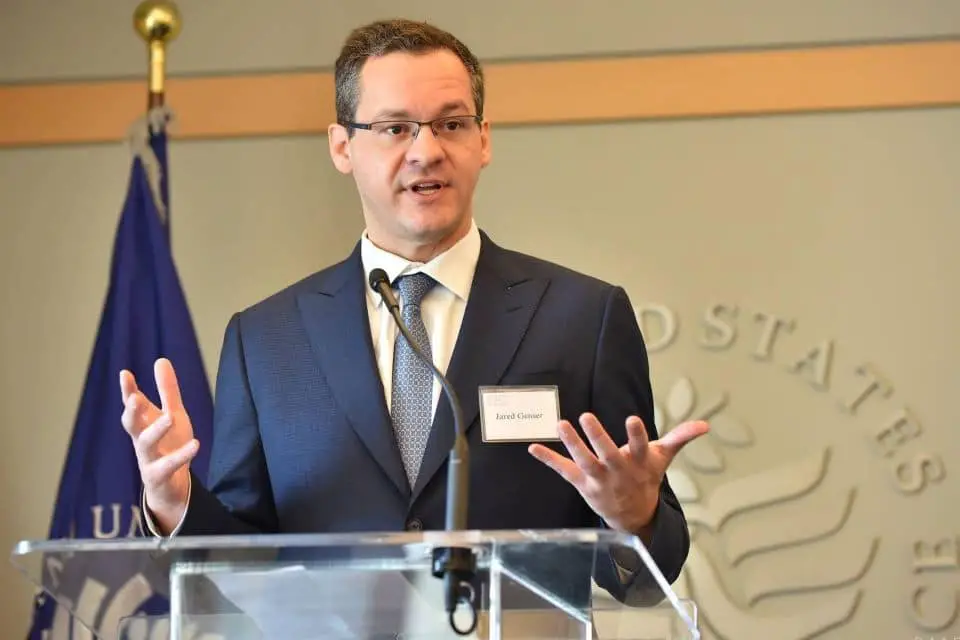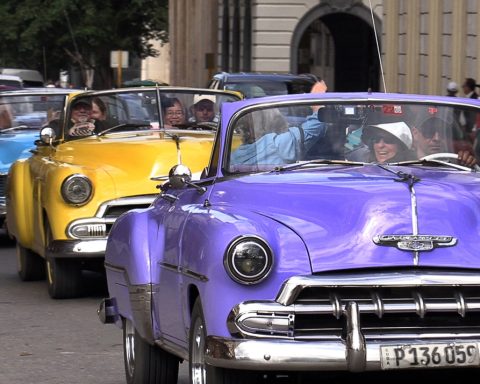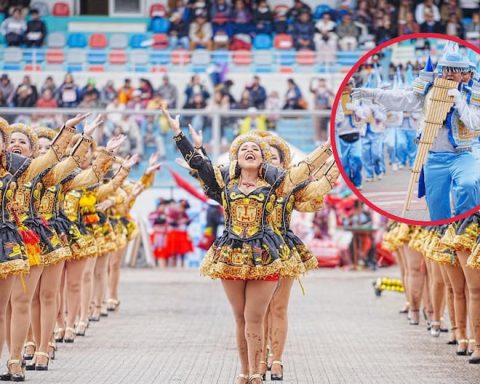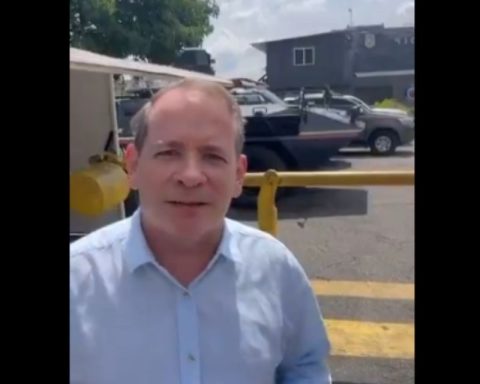For the international jurist Jared Genser, a specialist in human rights who has monitored the serious situation in Nicaragua, the sentence to 26 years and four months imposed by the Daniel Ortega regime on the Bishop of Matagalpa, Rolando Álvarez, constitutes a “deviation from justice in Nicaragua.
According to Genser, the judicial decision took away from Ortega the “gesture of liberation and completely destroyed him and what it does is remind us of his weakness and who he really is,” he said in an interview that will be broadcast this Wednesday, February 15 at 8.00 pm in the program Tonighton the Confidencial Nica channel on YouTube and through Facebook Live.
Genser is the general manager of legal services firm Perseus Strategies in Washington D.C.. and, in addition, he is the lawyer of the former presidential candidates Félix Maradiaga and Juan Sebastián Chamorro, who were exiled on Thursday, February 9, 2023, along with 221 political prisoners, after being imprisoned since June 2021.
The news of the departure of hundreds of inmates, however, did not surprise him. Months ago, he assured that dictators only released their prisoners when they had to. Ortega had also declared that the United States prisoners of conscience should be taken. He now believes that the release was due to the pressure that the United States exerted on the Nicaraguan executive.
In November of last year, you told CONFIDENCIAL that dictators only release political prisoners when they have to. What are the factors that influenced this decision?
There are a variety of factors that influenced the decision. First of all, the international pressure that Daniel Ortega was feeling. For example, with Berta Valle and Victoria Cárdenas, with whom I was working and who have shared his personal stories in different countries of the world.
Additionally, we have the international economic pressure that the Ortega government has been receiving, through the sanctions that have been imposed by the United States government, some other countries, the European Union; and also the pressures that are being generated directed by the United States against the loans in the International Monetary Fund, in the World Bank and in multilateral organizations.
This led to a little improvement in the conditions of the political prisoners around the end of last year and this shows us that the release was given not because he wanted to free them, but to reduce the international pressure he was feeling at that time.
Ortega and the US have said that it was a unilateral decision by Nicaragua. Was there a negotiation or not?
The best information that I have at this moment, taking into account that all this happened very quickly in January of this year, when Ortega made the offer of release, the only information that I have is what comes from the White House and the State Department is that there was no negotiation.
However, it was something that could be predicted taking into account the speech he made in January 2022, in which he expressly mentioned that the political prisoners were not Nicaraguan and that they should go to the United States and that they should receive them. What I have from my sources is that there were no concessions.
What is your assessment of the legal means used by the regime to get political prisoners out of the country? First he exiled them, and then he took away their nationality
It is an obvious violation of international law, since you cannot take away a person’s nationality, much less without any justification. There are some cases in which a person, when applying for a nationality, let’s say, provides false information, because other assessments could be made there.
But this is not the case of political prisoners. They are people born in Nicaragua, Nicaraguan citizens and their nationality cannot be taken away that way. That goes against the international human rights standards contemplated in the American Convention on Human Rights, the International Covenant on Civil and Political Rights, let’s say these are human rights: the right to nationality, to free movement, which are being violated let’s say for those performances.
For example,cWhat is the legal and political status of your defendants Félix Maradiaga and Juan Sebastián Chamorro and the other political prisoners?
At this moment they are under a figure that is called, by the United States government, Humanitarian Parole, it is an emergency figure in which they are admitted to the United States and makes them applicable. It gives them the possibility of applying for asylum, it is a process that will take time and possibly later they will be able to apply for residence.
However, to emphasize that this is a process that takes time, the important thing is that they do not have a risk of returning to Nicaragua and that they are safe in the United States.
On the other hand, the government of Spain made a generous offer to offer nationality to these political prisoners, and it will depend on each of them if they decide to take this generous offer. This would change their need to maintain and stay in the United States. I know prisoners who will not take this nationality for the simple reason that they continue to consider themselves Nicaraguans, because that is what they are. They are not going to take another nationality for that. That is independent of the decisions that the regime has taken.
Relatives of 35 political prisoners request international support for their release
How do you assess the case of Monsignor Álvarez, who did not get on the plane and was later transferred to La Modelo prison and was later sentenced to 26 years in prison?
The situation of Monsignor Álvarez is a deviation from justice. It is a tragedy, it is a violation of international law. This shows us the fear that Ortega has of Monsignor Álvarez, a Catholic bishop and for what he decides to sentence him to 26 years in prison, only 24 hours after not having decided to get on the plane in which the other political prisoners were released, this What he did was take away the gesture of liberation and completely destroyed him and what he does is remind us of his weakness and who he truly is.

















